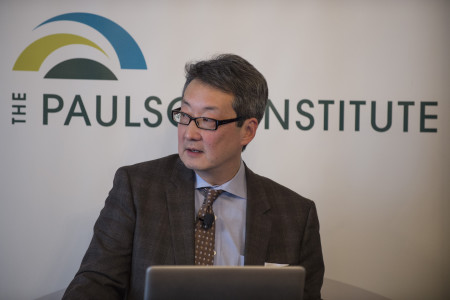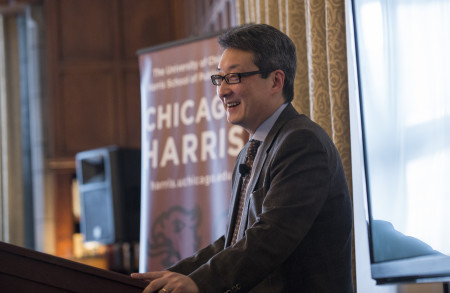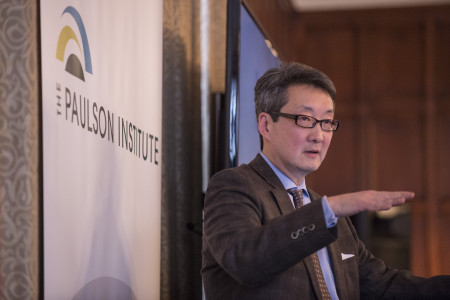When North Korea acts dramatically on the international stage, pundits sometimes pigeonhole China as the enabler. But does China truly love its North Korean neighbors? “Absolutely not,” said Victor Cha at the Paulson Institute’s Contemporary China Speakers Series, held today on the University of Chicago campus. “China despises North Korea.”
While North Korea and China are diplomatically tied, they share more disdain for each other than some observers might think, Dr. Cha, the D.S. Song Chair in the Department of Government and School of Foreign Service and Director of Asian Studies at Georgetown University, noted. Though China and North Korea recently have struck deals over resource extraction, Cha argued that China’s strategy toward the North will ultimately have to change, due to what he described as the unsustainable nature of the North Korean regime. “Under Kim Jong-un,” he said, “North Korean politics are only becoming more rigid.”
One glimmer of hope might rest in the development of civil society in North Korea, Cha said. In a country of nearly 25 million citizens, roughly two million have cell phones, which they use to share precious information about the world beyond their borders. If markets continue to develop, civil society may grow in tandem, according to Cha, who represented the United States at the Six-Party Talks on North Korea’s nuclear program in Beijing in 2006. “We don’t know what the trigger will be, but we should be ready for it strategically when it happens.”
How does America fit into the relationship? The US government has adopted a diplomatic approach of “strategic patience” toward North Korea, Cha explained, in which America can only wait for internal change. Contrary to the US-Cuba relationship, North Korea has denied the US an opportunity to gain a foothold—“or even a toehold,” he said—for conducting diplomacy.
Cha pointed out that there is no clear succession plan in North Korea. The best-case scenario would be that a military dictatorship might follow Kim Jong-un’s cult of personality rule. “Military dictatorships are more inclined toward market reforms,” Cha said. “The problem with giving a talk about North Korea,” he concluded, “is you can never end it on a positive note.”






